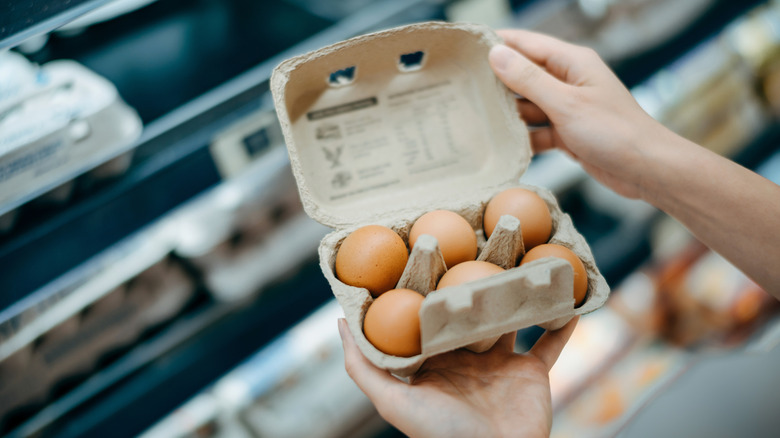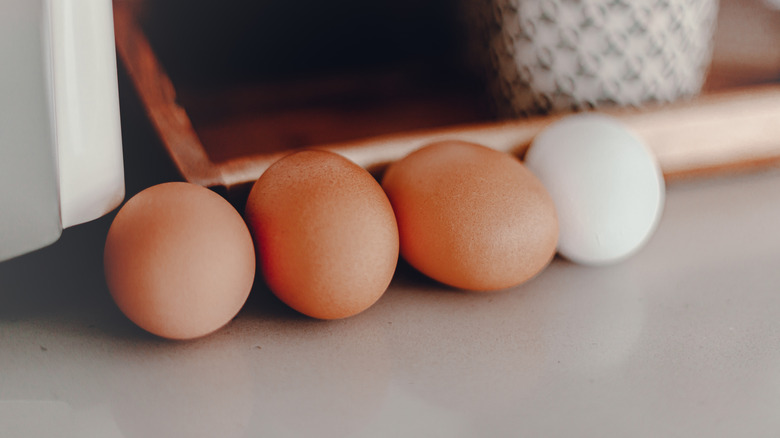Are Store Bought Eggs Pasteurized?
Do you remember being scolded as a kid for trying to lick the spoon when someone was making chocolate chip cookies? Maybe you heard something along the lines of "you'll get Salmonella if you eat that!" While it's well known that eggs can be contaminated by Salmonella bacteria, not as many people understand why. Well, it comes down to pasteurization.
As the FDA reports, all eggs — including fresh ones with intact shells — have a chance of containing Salmonella which can cause foodborne illness with symptoms such as fever, cramping, vomiting, and diarrhea. Although many people are able to recover on their own, some cases can be so severe they require hospitalization. However, the pasteurization process which uses controlled heat to kill harmful bacteria can remove the risk of Salmonella from egg products. Importantly, according to the USDA, out of the tens of billions of eggs produced in America, no more than three percent go through this process. While shelled eggs are usually not pasteurized in the U.S., the USDA requires all out-of-the-shell egg products, such as liquid egg whites in a carton, to be pasteurized.
Although it can be a challenge to find pasteurized eggs at your local grocery store, some grocers have product request forms you can fill out — or you could always ask a manager directly. Alternatively, you can also make your eggs safer at home, which can be essential if you need to use them raw.
Mimimizing risk by pasteurizing eggs at home
If you're unable to find pasteurized eggs at the store, it is possible to pasteurize eggs using the sous vide method. This cooking technique circulates heated water to maintain the continuous temperature that is essential for pasteurization. Both temperature and time are important in sous vide pasteurization, and the eggs need to be held at 135 degrees Fahrenheit for roughly 90 minutes.
That being said, the USDA points out that pasteurizing eggs at home is tricky to pull off without ending up with a cooked egg. This is because the specialized equipment commercial producers use simply isn't available to consumers. Moreover, Elisa Maloberti, a food safety expert for the American Egg Board, also confirmed to Simply Recipes that the precision required for properly pasteurizing eggs at home (without cooking them) is nearly impossible outside of a commercial facility.
With that in mind, attempting home pasteurization isn't necessarily dangerous — as long as you don't mind the prospect of accidentally cooking your eggs. If you're already planning on using raw eggs for something like the definitive eggnog recipe, it won't hurt to take a shot at DIY pasteurization, especially if you can't get pasteurized eggs any other way.

